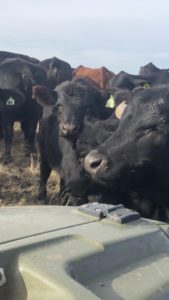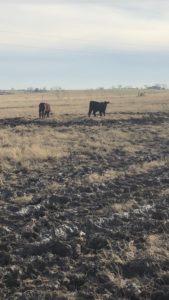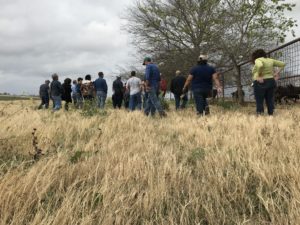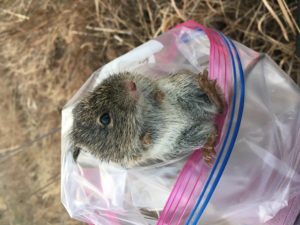Blackland Farmer Episode 05: Soil pH and Compaction Problems
Blackland Farmer Episode 05: Soil pH and Compaction Problems
Dr. Tony Provin – Professor, Extension Specialist and Director of the Soil, Water, and Forage Testing Laboratory at Texas A&M University – join Tyler and Ryan in the studio for an intro on soil pH and compaction problems in the Blacklands.
http://blacklandfarmer.libsyn.com/
Williamson County Worker Protection Training 1/11/19 12pm-2pm
Blackland Farmer Pod Cast Episode #4
Blackland Farmer Pod Cast Episode #4
Tyler and Ryan talk with Dr. Allen Knutson, Professor and Extension Entomologist, about the Fall Armyworm situation in 2018. Why was it such a bad year for armyworm damage; what are the best management strategies to deal with this pest?
http://blacklandfarmer.libsyn.com/
Blackland Farmer Podcast Episode 3 – Discussing Worker Protection Standards with Dr. Don Renchie
Ryan discusses controlling volunteer cotton near gin yards and non-crop field locations. He interviews Dr. Don Renchie, Extension Program Leader for Agricultural and Environmental Safety, about Worker Protection Standards and training requirements for producers using the latest transgenic herbicide technologies in cotton. Ryan also talks with Kate Whitney, County Extension Agent-Horticulture, about her Master Gardener program and recent lettuce variety trial.
Farm Intern Georgina Macias
Last week at the stiles farm was mostly racing to beat the rain and get as much done as we could. The beginning of the week we were mostly in the field, and fed hay to the herds. On Thursday we worked the main herd, brought in the vet to pregnancy check, and selected some heifers to retain and sold as many steers as we could. Due to the rain we had to call it quits early and got about 80% of the herd done. We will hopefully finish working the herd later, if the weather cooperates, and get some more condition on them now that most of the calves are gone. Now that most of the fields are wet we are doing some necessary maintenance on the hay tractors that we use everyday, and getting some other things done on our to do list.
Georgina Macias Fall 2018 Intern
Looking at the heifer calves we want to retain, and keeping an eye on condition.
Keeping an eye on some of the early calves that have dropped
Battleground to Breaking Ground Entrepreneurial Training Project USDA NIFA Beginning Farmer Rancher Development Program
Farm Intern Georgina Macias
The month of November was a wet one at the stiles farm, most days we saw rain and when we didn’t it was still to wet to get out in the fields. This was a great opportunity to do some cleaning up at the farm and get ahead on some of the things before things started to pick up again. I am now signed off on the hay tractor and began to feed hay by myself last week, this has been a 3 month process and I’m proud of myself to see how far I’ve come since my first time driving it. This past week and last week the weather finally cleared up enough we were able to g et some wheat planted around the farm and I’m excited to see how it comes up. Last week at the farm we hosted the Battleground to Breaking Ground, a program by Extension and Agribility that helps veterans to get involved in agriculture. It was educational to both learn about he vets, but see how Extension programs are run and put together thanks to the awesome Williamson county agents and the Agribility employees. The month of December will hopefully be an exciting and not too cold month, and I look forward to the tail end of my time here at the Stiles Farm to be amazing.
et some wheat planted around the farm and I’m excited to see how it comes up. Last week at the farm we hosted the Battleground to Breaking Ground, a program by Extension and Agribility that helps veterans to get involved in agriculture. It was educational to both learn about he vets, but see how Extension programs are run and put together thanks to the awesome Williamson county agents and the Agribility employees. The month of December will hopefully be an exciting and not too cold month, and I look forward to the tail end of my time here at the Stiles Farm to be amazing. 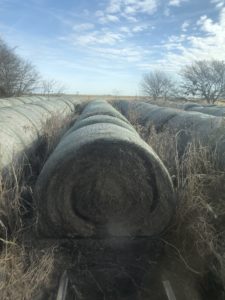
-Georgina Macias Farm Intern Fall 2018
Common Snapping Turtle
Wild Life Intern AnMarie Ulery
This week I continued with my small mammal surveys and had several capture successes along my transects each night. The most commonly trapped species this week was the Hispid Cotton Rat, which is pictured below. This species usually inhabits tall grass areas where they can have both freedom of movement and a protective canopy, making them perfectly suited to the tall grass pasture where I am currently trapping. This week I also made some final preparations for mesomammal trapping. To prepare the foothold traps for field use after dipping, I have had them buried in dirt for the past few weeks to assure that they no longer have any smell that would alert an animal to their presence. After uncovering all of the traps, I used a trap pan tester to determine pan tension and adjusted each trap accordingly. Since we are aiming to selectively trap coyotes and foxes, each trap needs to have a pan tension that keeps the trap from closing unless two or more pounds of pressure are applied to the pan. When the foothold traps are set at a higher pan tension we are more likely to avoid non-target captures of lighter animals such as skunks and raccoons. Wild Life Intern AnMarie Ulery



